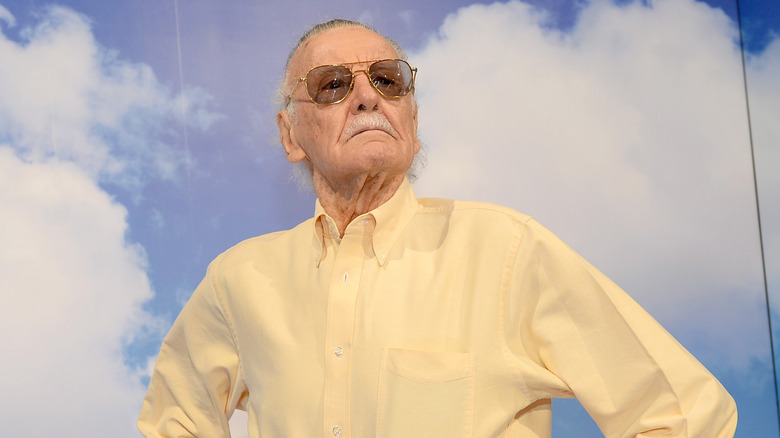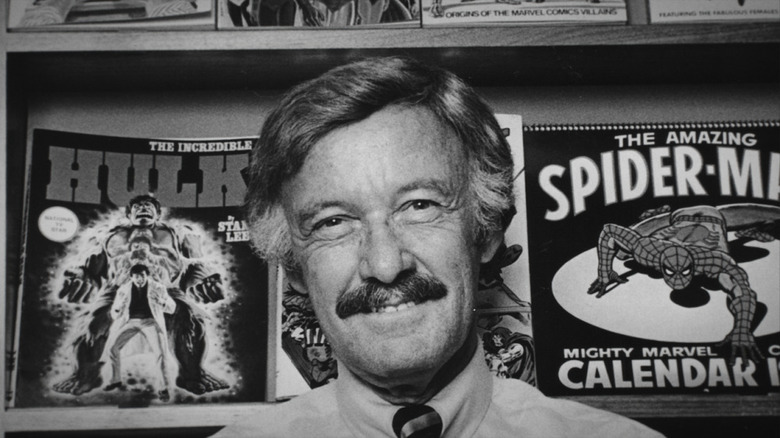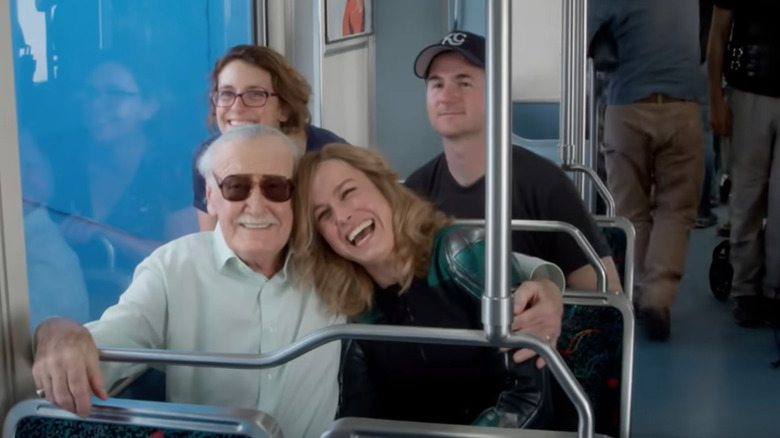Stan Lee Review: A Documentary Toned Down For Disney+
- The mostly Marvel-focused material is presented entertainingly
- Acknowledges enough controversy to avoid pure hagiography
- Not a full biography, skipping over many stranger and sadder chapters
Any documentary on Disney+ that's connected to a Disney-owned media property is inevitably going to be at least partially a work of self-promotion. It might be interesting self-promotion, and if you're lucky, the filmmakers might even get the chance to work something candid in there — "Mickey: The Story of a Mouse" somehow worked in discussions of racism and tyrannical copyright enforcement between all the corporate back-patting. But there's a limit to how much warts-and-all examination the studio is going to allow in such a project — look at how Disney has suppressed the release of "The Sweatbox," the documentary about the hellish production of "The Emperor's New Groove," for proof of those limitations.
If any subject is well suited for the Disney mode of documentary as self-promotion, Stan Lee is as easy a fit as any, given how much of his legacy is built upon his own expert self-promotion. The new Disney+ "Stan Lee" documentary, made by "Jiro Dreams of Sushi" director David Gelb, presents the story of Lee's rise to comic book stardom mostly through the man's own words. Whether or not his words were completely trustworthy, Lee was certainly a talented storyteller, and the movie explores what made his work at Marvel Comics so great while acknowledging the biggest issues of contention around his co-creations. If you want a full picture of Lee's life beyond his work at Marvel, however, you're not gonna find it on Disney+.
The not-so-secret origins of Stan Lee
Like his many superhero creations, the "origin story" of Stan Lee has been told many times over. Born Stanley Martin Lieber to Jewish immigrant parents, Lee grew up amidst the Great Depression a well-read kid with ambitions of being the next great American novelist. Getting a job as an assistant at Timely Comics at 17 years old, he soon found himself working as a writer and editor, using Stan Lee as a pen name. At the time this was out of embarrassment for working in a maligned medium; eventually, he'd become so celebrated under this pen name he'd make it his legal name.
Lee would spend the '40s and '50s writing comics across various genres, but it wasn't until 1961 that he'd finally be inspired to write the sort of comic he'd want to read himself: "Fantastic Four," co-created and illustrated by Jack Kirby. Offering a more human take on the superhero genre with appeal to both kids and adults, the series revolutionized the artform, leading Lee to develop more characters with Kirby and Steve Ditko and build up the company now known as Marvel Comics.
David Gelb presents this background through a mix of archival interviews (mostly with Lee, though occasionally including others like Kirby, Joe Simon, and Flo Steinberg), home videos, and action figures. Yes, action figures. Since reenactments run the risk of being cheesy and animation is expensive and time consuming, the "Stan Lee" documentary chooses to illustrate unfilmed scenes from Lee's life via elaborate still dioramas. Apparently Funko designed these, though looking at the detailed and expressive models you'd never guess they came from the same company known for turning pop culture characters into identical bobbleheads. It's a unique and fitting stylistic touch for a type of movie that could easily have coasted by on more anonymous direction.
A gigantic time-skip
"Stan Lee" divides its different segments by years, showcasing in montage what was going on in the outside world at different points in its subject's life. So when one of these montages contains both the fall of the Berlin Wall and the inauguration of Barack Obama, you might wonder why this film is taking such a drastic skip ahead in time. The basic reasoning is to focus on Lee's work at Marvel — he stopped regularly writing comics for Marvel in 1972 and was away from the company throughout the 1990s and 2000s. The movie decides to conclude with the rejuvenation of Lee's legacy via the Marvel Cinematic Universe, showcasing how the filmmakers loved having him around for cameos and how Kevin Feige drew creative inspiration from Lee's old work.
The one scene of interest presented between 1972 and 2010 comes through a 1987 radio show where Lee is brought on to speak with his former artistic collaborator Jack Kirby, only for the two to continue debating which of them actually deserved the credit for their creations. The issue of whether Lee stole credit from Kirby and Steve Ditko is the one big controversy any honest documentary can't ignore, and it's here we get the more candid drama away from the pre-packaged slickness of Lee's self-serving narratives.
More questions might have been raised had the documentary gone into Lee's post-Marvel creative work — one look at any of those failures and it's clear just how vital Kirby and Ditko were to the success of those '60s comics. Speaking after a screening at the Tribeca Film Festival, David Gelb emphasized that the decisions of what to cover were based in large part on keeping the documentary kid-friendly, so we're not getting any details on the creation of "Stripperella," and even a more upbeat segment on the counterculture's embrace of "Doctor Strange" had to get cut for its edgier content. We're also not getting anything about the strained relationship between Lee and his daughter JC, nor anything on the many reports of elder abuse targeted at Lee in his final years.
There's certainly room for a more thorough documentary to be made looking at the bigger picture of Lee's life. It's probably also too dark and sad for a Disney production. Considering the limitations that it's working within, Gelb's "Stan Lee" is a beautifully produced film that offers a good look at the most celebrated part of its subject's career. But it's far from the full story.
"Stan Lee" premieres on Disney+ June 16.


